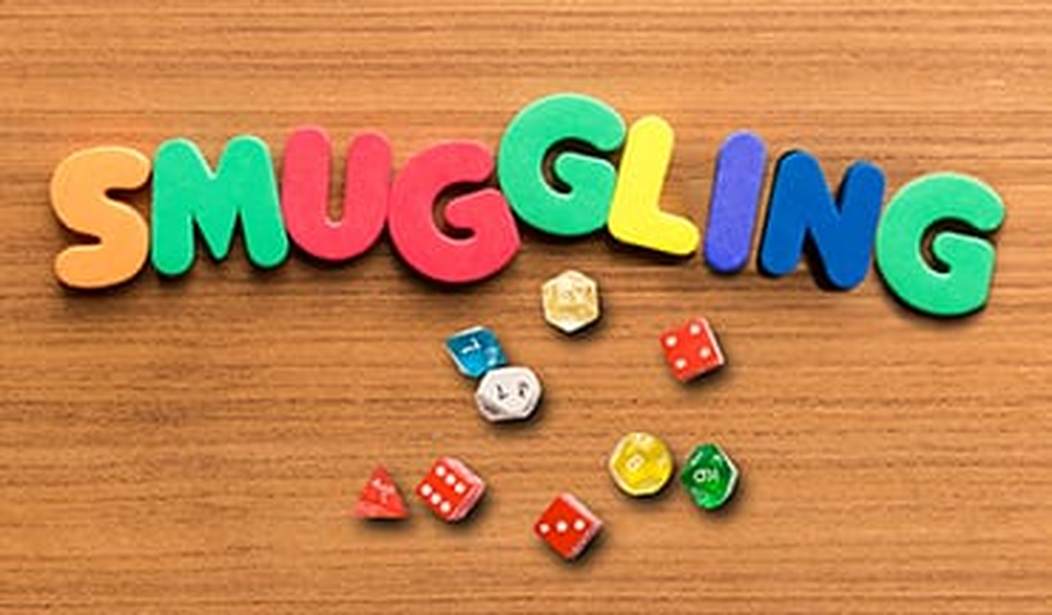Obligatory disclaimer: the following is in no way intended to be a primer on how any person could, in real life, engage in the smuggling of illegal or untaxed goods for the purpose of evading the law. It merely discusses how the concept of smuggling might be used in the context of a tabletop roleplaying game (RPG). I encourage everyone reading this to respect federal, state, and local laws on this (and, indeed, every other) matter.
Now that we have that out of the way… smuggling is one of those things that can be a marvelous complication for a RPG adventuring party. Sometimes the players are the people going after smugglers; sometimes they’re the people who are the smugglers. And sometimes they’re the people being smuggled. Fortunately, all three scenarios can be useful for a gamemaster (GM).
Generally speaking, there are three main reasons to smuggle something. There’s smuggling of explicitly illegal items, which typically means drugs, weapons, or socially disruptive technology; there’s smuggling of legal, but untaxed or restricted items, which is generally considered to be a good deal less immoral by anyone who isn’t a customs official; and then there’s smuggling of people (which really does need its own category). An adventuring party can get itself thoroughly in trouble when doing any of those three things, frankly.
And a good GM can justify tempting the adventuring party into doing it, too. For example, it’s probably unlikely that a ‘good’-aligned adventuring party will find itself willingly smuggling, say, uncut heroin. But will they have the same scruples when it comes to running guns to suitably palatable rebels? Or smuggling Bib… ah, ‘the Book of Light’… into North Kor… erm, ‘the Dark Realm?’ Maybe they won’t. But they’ll still be a distinct risk of getting shot at by law enforcement if they get caught (and goodness help them if the players shoot back). Comparatively speaking, smuggling legal goods is considered to be a good deal more romantic and a bit less nefarious. It’s essentially tax evasion, when it’s not just ignoring perceived-to-be-stupid bureaucratic rules and regulations; although the cops may feel differently, of course. But even then the threat of violence is less prominent.
And then there’s smuggling people. This can be done for evil (the Middle Passage) or good (the Underground Railroad) purposes; but in either case it still should be considered a separate category, because there’s always going to be a wild card there. That is to say, the people being smuggled. Even people who are voluntarily engaged in being smuggled can still wander off at the drop of a hat, do stupid things that attract attention, not listen to instructions, not care about the instructions, won’t keep their mouth shut… basically, anything that the GM might need them to do. Add to that an environment where the people who oppose the smuggling are likely ready (and may even be legally allowed) to just execute on sight the smugglers, and the GM now has an intrinsically dramatic scenario to work with.
A few other thoughts on the subject: first off, like all criminal activities smuggling is one of those things where, if the players get betrayed or cheated, it’s a little hard for them to seek redress from either the law or the police. A simple refusal to pay for a particular smuggling operation can result in several follow-up adventures, depending on how vehemently the players objected to not paying, or not getting paid. And the GM can spring that follow-up adventure whenever he likes; after all, Somebody From Your Checkered Past Has Come Back Seeking Revenge is a staple of genre fiction. Second: never underestimate the narrative power of making the players think that they’re smuggling one item, but are actually smuggling another*. Third, and last: if your players are ever captured, they will almost certainly try to argue that smugglers possess a skill set that the average government would no doubt find very useful, it would be a shame to waste that, etc. etc. etc. So be prepared for that argument, at least. And possibly an abrupt change in the campaign, if such a change actually sounds appealing.
*A classic of this type of misdirection occurs in George MacDonald Fraser’s Flashman and the Dragon: in that book [SPOILER ALERT], Harry Flashman is hired to help smuggle opium upriver in China. Which is technically illegal, but still considered to be safe enough — only Flashman discovers that in fact he’s running guns to the Taiping Rebellion, which was an activity that was decidedly not safe. I recommend this book because Flashman’s immediate response is a stellar practical example on how to quick-wittedly bald-face lie your way out of disgrace, or a noose — which is frankly a survival skill for your average player-character. Or at least should be.









Join the conversation as a VIP Member